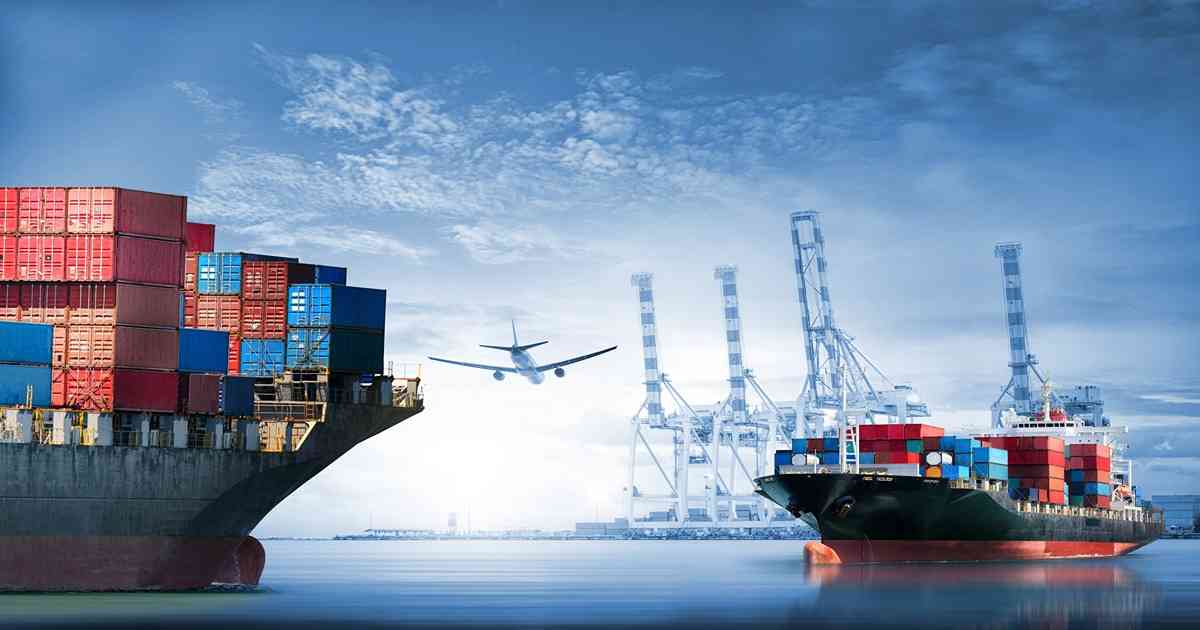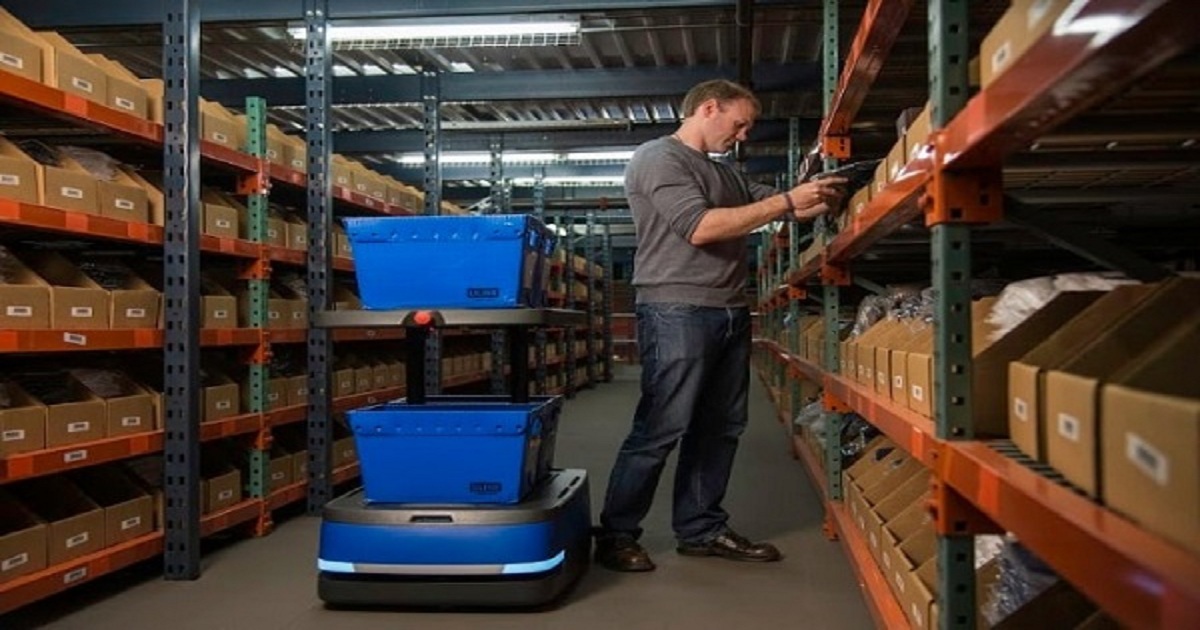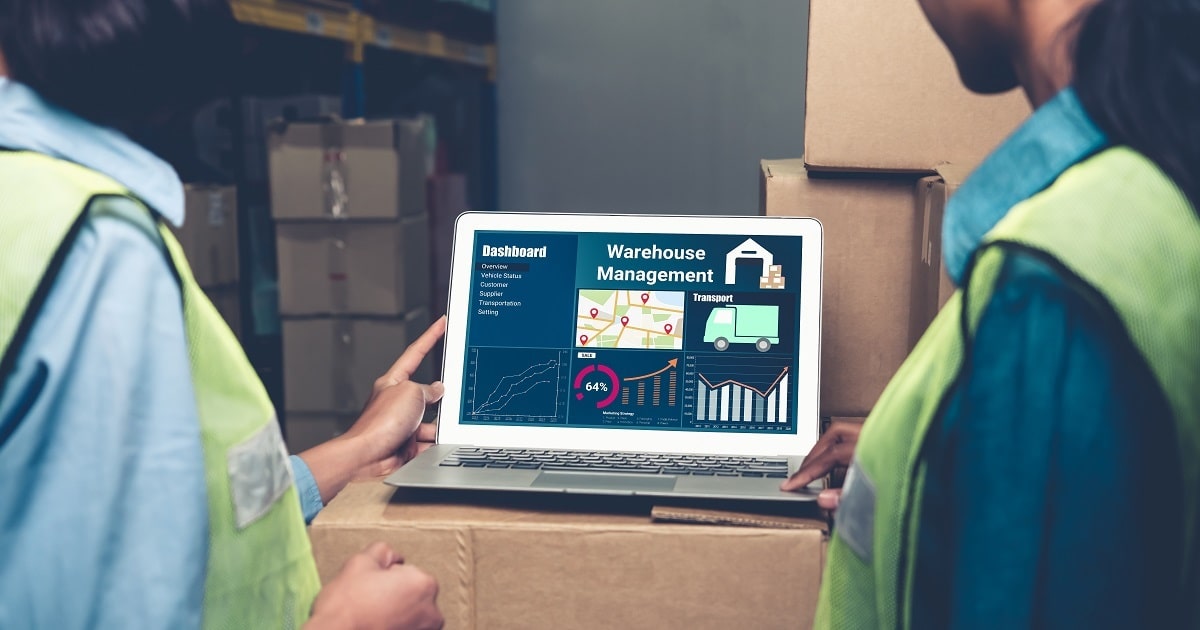
Warehousing and Distribution
Article | July 11, 2023
Enhance professional skills and knowledge in supply chain management by attending top industry events. Gain insights from thought leaders, connect with peers, and stay ahead of the competition.
Supply chain and logistics professionals face various challenges in improving supply chain efficiency and overcoming obstacles. The industry is complex and highly competitive, with external forces making it more challenging. Supply chain and logistics conferences help to address these challenges and promote a healthy international supply chain. In addition, the events will offer a comprehensive platform for professionals to understand the latest innovations & technologies and learn about digital transformation within the supply chain. Discover the latest insights, innovations, trends and more at the top 15 supply chain events to be held between May and December in 2023.
1. Swiss Supply Chain & Logistics Conference 2023
May 31- June 1, 2023 | Zurich (Switzerland)
The Swiss Supply Chain & Logistics Conference is a comprehensive platform uniting global stakeholders within the industry. The event focuses on presenting cutting-edge innovations and technologies, addressing industry challenges, and promoting environmentally friendly solutions. By fostering networking opportunities, the conference aims to facilitate business collaborations among participants. Attendees representing various stakeholders in the value network can expect to gain insights into creating agile, resilient, and sustainable supply chains while optimizing logistics operations. Esteemed speakers will discuss critical topics such as supply chain digitization, demand forecasting, and sustainable transportation practices, which directly impact businesses' bottom lines.
2. ASCM Connect 2023: Europe
June 27-28, 2023 | Belgium (Europe)
ASCM is set to host ASCM CONNECT 2023: Europe, a highly anticipated conference in Brussels. The event promises an extensive range of educational sessions covering the latest trends and developments in the supply chain field. Supply chain professionals attending the conference will allow them to connect with peers, gain insights from industry leaders, and explore advancements in the area. In addition, keynote speakers will share their corporate transformation journey, sustainability in the supply chain, resilience while disruptions, and their views on topics related to the digital supply chain. This event offers a platform for networking and knowledge sharing that can positively impact the growth and success of supply chain businesses.
3. Annual European Supply Chain Management Strategies Summit
November 7-8, 2023 | Munich (Germany)
The European Supply Chain Management Strategies Summit is a premier event that provides a unique platform for senior leadership to explore case studies and solutions in the supply chain industry in Europe and globally. This conference focuses on essential methods to enhance supply chain management. Attendees will gain insights into improving logistics and inventory management, implementing and optimizing IoT and new technologies, fostering collaboration and transparency with suppliers, and mitigating key and emerging risks. In addition, the summit offers an opportunity for supply chain businesses to contribute to the conversation and improve management practices.
4. Empack: The Future of Packaging Technology
November 29-30, 2023 | Madrid (Spain)
The upcoming 15th edition of Empack Madrid, scheduled at IFEMA, is focused on the future of packaging technology and promises to offer a transformative experience for professionals in the logistics and packaging sector. This innovation-driven event is a hub for networking, knowledge sharing, and business opportunities. Attendees will learn the latest advancements and updates that will optimize their supply chain operations within a few hours. Empack caters explicitly to designers, packaging managers, marketing professionals, product developers, sustainability advocates, and industrial packaging, labelling, printing, weighing, palletizing, and robotics experts. Additionally, the event features a key session with Jose Luis Gallego, a prominent naturalist, environmental disseminator, and writer, who will share valuable insights.
5. Future Supply Chain
November 28 - 29, 2023 | Torrey Pines (California)
The Logistics & Supply Chain Summit is designed to bring together supply chain and logistics professionals and key industry solution providers. The event provides a platform for engaging in one-to-one business meetings, participating in interactive seminars, and building valuable professional networks with the range of industry experts, including keynote speakers such as Clare Bottle (Chief Executive of UKWA), Richard Lim (Chief Executive Officer of Retail Economics), Jon Brewin (Business Development Manager of AutoStore System), and Jonathan Ogg (Senior Solution Architect of sofco Limited). The seminars and discussions at the summit cover a range of topics, including emerging technologies, innovative logistics solutions, and sustainable supply chain practices.
6. Deutsche Bank's 2023 Transportation Conference
August 15-16, 2023 | New York City (United States)
Deutsche Bank presents the highly anticipated 2023 Transportation Conference, an event that offers market-leading insights into the global transportation industry. The conference caters to logistics industry professionals with a comprehensive program, including one-on-one and group meetings, engaging fireside chats, and intimate small company dinners for networking. Renowned industry experts, including esteemed key speakers, will share their extensive knowledge and expertise on various logistics and transportation topics. Discussions will cover market dynamics, emerging trends, regulatory developments, and lucrative investment opportunities. The conference provides an invaluable platform for supply chain businesses to gain critical market intelligence, establish strategic partnerships, and capitalize on vast opportunities in the industry.
7. International Conference on Transportation and Development (ICTD 2023)
June 14, 2023 | Austin (Texas)
ASCE's Transportation & Development Institute (T&DI) has organized the co-located ICTD 2023 and Pavements 2023 conferences in partnership with TxDOT. The collaboration brings together global leaders in transportation, development, and pavements, offering an exceptional networking and knowledge-sharing platform for supply chain businesses. Professionals and researchers worldwide will convene to explore topics such as transportation strategies, cutting-edge technologies, infrastructure solutions, and pavement best practices. In addition, the influential key speakers, including Marc D. Williams, Carlos Braceras, Marie Dominguez, Butch Eley, Roger M. Millar Jr., Diane Gutierrez-Scaccetti, Lorie Tudor, and Eileen M. Velez Vega, will share industry-related insights and experiences.
8. Supply Chain Risk and Resilience Forum 2023
May 30 - June 1, 2023 | Berlin (Germany)
The Resilient Supply Chain Summit brings together 35+ experts to discuss new strategies and approaches to manage supply chain risks and build resilience in future crises. The conference provides deep-dive assessments of categories, supplier portfolios, and processes to surface potential issues, better understand risk exposure and vulnerabilities across the supply chain, and identify winning strategies for current and future challenges. Join the summit to gain insights from industry experts and improve your supply chain ecosystem.
9. Gartner Supply Chain Symposium/Xpo
June 5-7, 2023 | Barcelona (Spain)
In today's changing world, supply chains have become more crucial than ever, given their ability to navigate disruptions and manage risk while maximizing returns. Supply chain leaders can deliver profitably in times of uncertainty by leveraging their credibility, confidence, and commitment. Gartner Supply Chain Symposium/Xpo 2023 will explore big ideas and provide actionable insights to help supply chain leaders develop agile and resilient strategies, mitigate risk, respond to disruptions, pursue digital initiatives that drive growth, develop talent for the future, and prioritize technology investments.
10. Supply Chain USA 2023
June 13-14, 2023 | Chicago (United States)
Supply chain professionals, mark your calendars for the upcoming event in Chicago, where 900 executives from the supply chain ecosystem will convene to address the pressing need for resilient, customer-centric, ESG-compliant, cost-effective, and data-driven supply chains. The event is an opportunity to exchange insights, innovative solutions and best practices with industry heavyweights, leading technology providers, forward-thinking logistics organizations, Fortune 500 retailers and manufacturers, and government officials. In addition, the event will help the participants understand how to overcome the glaring weaknesses prevalent in fragmented, siloed, inflexible, and inefficient supply chains and emerge with the right strategies for a successful future.
11. 6th Edition Supply Chain Innovation Summit
June 15-16, 2023 | Amsterdam (Netherlands)
Supply chain management is undergoing a digital revolution that renders old fundamentals obsolete. As a result, companies must rethink and redesign their strategies to stay ahead of the new trends. The Supply Chain Digitalization Summit 2023 will provide an in-depth exploration of the latest advances and techniques in supply chain technology and innovation. Experts will cover every modern supply chain management aspect, from planning and strategy to risk management and customer focus. Gain insights from industry leaders that will help in transforming supply chain operations.
12. The Future of Supply Chain 2023
June 21-22, 2023 | Cleveland (Ohio)
The Future of Supply Chain will bring together executives, academics, and experts to share their knowledge, experience, and vision for the future of supply chain management. The event will feature captivating discussions and fast-paced demonstrations of emerging technologies that will shape the industry's future. In addition, attendees will have a chance to explore interactive sponsor kiosks and network with like-minded professionals. This year's conference will feature special topics such as the circular economy, blockchain, and last-mile delivery.
13. Digital Supply Chain Transformation 2023
October 3-4, 2023 | Biltmore (Miami)
The Digital Supply Chain Transformation Assembly is an exclusive gathering of industry experts, thought leaders, and visionaries at the forefront of digital transformation in the supply chain industry. The event provides an opportunity to learn from what the field's experienced and innovative minds share about the experiences for navigating the challenges of the digital era. Through interactive discussions, hands-on workshops, and insightful keynote speeches, attendees will gain practical insights and strategies for transforming their supply chains, improving operational efficiency, and enhancing customer experience.
14. Gartner Supply Chain Planning Summit 2023
November 29-30, 2023 | Phoenix (Arizona)
The Gartner Supply Chain Planning Summit 2023 is the right platform for supply chain planning leaders to learn about new strategies, insights and frameworks to tackle the challenges of network complexity, demand volatility, and supply disruptions. The event allows heads of Supply Chain Planning, S&OP, integrated business planning, demand planning and supply/inventory planning to connect and share their future vision. At the summit, attendees will gain actionable insights and drive resiliency to achieve sustainable business outcomes. Join now and shape the future of supply chain planning.
15. Supply Chain & Logistics Transformation Summit 2023
November 29- December 1, 2023 | Phoenix (Arizona)
The Resilient and Sustainable Supply Chain Summit will bring supply chain and logistics leaders to address the topics and learn from peers and industry experts how to accelerate digital adoption, transform the supply chain with new technologies, and build the leadership, team skills, and capabilities needed for long-term success. This summit will help professionals to stay ahead of the curve in the ever-changing supply chain management landscape. In addition, it will gain valuable insights into the latest trends, strategies and best practices for building resilient and sustainable supply chains that can withstand disruptions and meet the demands of a rapidly-changing world.
Conclusion
Professionals in the supply chain and logistics industry face challenges in improving efficiency and overcoming obstacles due to high competition, making it crucial to stay informed about the latest industry developments and best practices to succeed.
Attending the top supply chain conferences can provide an opportunity to address challenges, learn about the latest innovations & technologies, and maintain adequate supply chain operations. In addition, attending the events and conferences for supply chain opens up better possibilities for supply chain and logistics professionals to network, gain valuable insights, engage in peer-to-peer discussions and access resources.
Read More

Warehousing and Distribution
Article | July 11, 2023
Automated supply chain planning maximizes efficiency and helps achieve long-term success by addressing challenges, highlighting the benefits, and offering insights to optimize business performance.
Contents
1 Supply Chain Planning System Efficiency Maximization
2 Key Steps of Supply Chain Planning to Boost Efficiency
2.1 Implement Advanced Analytics Tools
2.2 Streamline Communication and Collaboration
2.3 Automate Processes
2.4 Consistency in Performance Improvement
3 Overcoming Major Challenges in the Process to Maximize Efficiency
3.1 Resistance to Change
3.2 Legacy Systems and Siloed Data
3.3 Inadequate Funding
4 Conclusion
1 Supply Chain Planning System Efficiency Maximization
To compete and succeed in an ongoing complex and dynamic global market, companies must maximize the efficiency of their supply chain planning systems, which help manage the flow of goods and services from suppliers to customers, optimize resources and information to meet customer demands and minimize costs and risks. An adequate supply chain planning system can increase customer satisfaction, profitability, agility, and risk management. Moreover, by reducing costs, increasing productivity, and enhancing responsiveness to market demands, maximizing efficiency can help businesses remain competitive. As a result, businesses can gain a substantial competitive edge and position the organization for long-term success by optimizing their supply chain planning systems.
2 Key Steps of Supply Chain Planning to Boost Efficiency
Businesses can significantly boost efficiency in their supply chain planning by implementing advanced analytics tools, streamlining communication and collaboration, automating processes, and ensuring consistency in performance improvement.
2.1 Implement Advanced Analytics Tools
Implementing advanced analytics in supply chain planning is key to improve supply chain efficiency. Advanced analytics tools, including demand forecasting, production planning and inventory management, can help organizations leverage large volumes of data to extract insights that enable better decision-making. The insights can be used to optimize production planning, reducing costs and increasing efficiency. In addition, it also enables businesses to detect and respond to supply chain disruptions on operations.
2.2 Streamline Communication and Collaboration
Managing and streamlining communication becomes essential for supply chain businesses, as it leads to greater agility and enables pipelines to adapt to changes in organizational structures. Leveraging cloud-based communication platforms, video conferencing, and collaboration tools enable real-time information sharing and collaboration across different teams and stakeholders. By enhancing communication and collaboration, businesses can better align their supply chain objectives, reduce communication gaps, and enhance decision-making.
2.3 Automate Processes
The integration of technologies such as order processing, inventory management, and shipment tracking under warehouse automation and logistics automation produces a vast amount of data, making it challenging for businesses to process data manually. To enhance efficiency, automating supply chain planning processes has become essential. Automating the process has eliminated multitasking, including managing goods flow, tracking road progress, and ensuring safe delivery, which was previously required in the manual process. By automating processes, supply chain management can be streamlined, leading to reduced lead times, minimized costs, and improved efficiency.
2.4 Consistency in Performance Improvement
Improving the supply chain is not a one-time fix, but a process that must be reviewed and optimized frequently. By implementing technology, businesses can continuously collect and analyze warehouse inventory management performance to identify areas for further efficiency gains and improved order accuracy. In addition, establishing a framework for continuous optimization involves regular performance reviews, feedback mechanisms, and benchmarking against industry best practices to help identify and address inefficiencies.
3 Overcoming Major Challenges in the Process to Maximize Efficiency
3.1 Resistance to Change
Supply chain planning systems are hindered by change resistance. Employees may resist change who are comfortable with the status quo and adopt new technologies and processes less often. Organizations need a comprehensive change management plan to address stakeholder engagement, communication, and training. Implementing a change management plan starts with identifying the key stakeholders and involving them in planning to gain their buy-in and support for the changes, implementing the process of the changes using different channels to reach all stakeholders and in addition, developing training programs to prepare employees for the changes and enable them to use new technologies and processes effectively.
3.2 Legacy Systems and Silos Data
Data silos and a lack of supply chain visibility are two problems that can arise when legacy systems and data are used. It also adds roadblocks in maximizing efficiency through supply chain planning software. Investing in older systems makes it challenging to gain a comprehensive view of the supply chain and informed decisions making. In addition, the systems are non-compatible with modern technology and data is stored in disconnected systems. With the help of an integrated system, all relevant information can be collected in one place, streamlining monitoring and decision-making. A data governance policy should be implemented to guarantee data quality and uniformity across all platforms. Data management, data storage, data sharing, regular monitoring and reporting on data quality are all essential components of this policy.
3.3 Inadequate Funding
Insufficient funding can affect supply chain planning system efficiency; with budget constraints, organizations may struggle to invest in new technologies, hire skilled workers, or improve processes. Thus, the supply chain planning system may become obsolete, increasing costs, lead times, and customer dissatisfaction. To overcome the challenge of inadequate funding in supply chain planning, organizations must prioritize funding and strategically allocate resources by identifying the areas that require the most investment. Exploring alternative funding sources, such as grants and partnerships, can supplement existing funding and enable organizations to invest in vital initiatives that may not have been possible with limited resources. In addition, cost-cutting measures, such as process optimization and automation, can help to stretch existing funds and boost productivity.
4 Conclusion
The supply chain planning system will continue to play a critical role in maximizing efficiency to revolutionize the supply chain professionals leverage emerging technologies such as AI, ML, and blockchain; understanding the process, identifying the challenges and overcoming them using the right strategies helps businesses in effective supply chain planning systems, gain a competitive advantage, improve supply chain performance and position themselves for long-term success. Furthermore, adopting a data-driven approach and a culture of continuous improvement in supply chain management planning can help organizations plan according to the future of supply chain and compete in the ever-changing global market.
Read More

Management
Article | June 21, 2023
Order picking is the most resource-intensive operation of a warehouse or fulfillment center. More than 55% of the operating cost for a warehouse is related to order picking, and fulfillment centers, the number stands at 50%. It is the process that can bring in the most cost savings with an effective, streamlined and efficient order picking system. One of the most important components of your order picking system is the warehouse order picking cart. Order picking carts are used to move inventory from the warehouse shelves to sorting or packing stations. They make it easier for warehouse associates to carry multiple items at a time or to carry large, unwieldy items. When it is possible to carry multiple items on a trip, it drastically reduces the distance traveled by associates on foot. It also helps to reduce physical fatigue and improves efficiency dramatically.
Read More

Supply Chain
Article | March 22, 2022
Warehouse Management System
In Supply Chain, warehouse management acts as the bridge between the supplier and customer. The warehouse facility utilized to consolidate or accumulate products and reduce the transportation cost to achieve economy. Warehouse Management System (WMS) refers to the movement and storage of materials within a warehouse. WMS is part of the Supply Chain Management and concerned with the receipt, shipping and picking of materials.
To effectively monitor the flow of products, WMS utilizes technology devices such as Barcode scanners, Bio-Metrics, and RFID to name a few. A seamless link created between the warehouse facility, order processing and logistics management till shipment. Warehouse management just not limited to the warehouse; it can also a component of Supply Chain Management (SCM) and, when done well, provides a competitive advantage to the business or organization.Supply Chain Management is the management of flow of goods and services including raw materials, work-in-process inventory and finished goods. The markets these days are transcending borders and managing the demand-supply quotient is increasingly getting complex. Production centers are setup at locations where the raw materials and labour are cheaper. Raw materials sourcing and finish goods distribution are done globally.
Supply Chain Management
Thus Supply Chain Management refers to all business processes and activities involved from the procurement of raw materials to the manufacturing and distribution of finished products. SCM in short is the art of providing the right product at the right time, place and cost. As inferred, SCM gets much wider in scope than WMS. However, WMS is perhaps the last mile in the Supply Chain Management system and any hitch in the efficacy of WMS system hampers SCM too.
Conclusion
The primary aim of Supply Chain Management is to match supply with demand. For this to work, the supply chain should be free from bottlenecks such as errant supplies, difficulty in sourcing etc. There seemed significant confusion about the phrases SCM and WMS until recently, and both frequently used interchangeably. However, it been generally accepted that warehouse management refers to the logistics of warehouse, storing, stocking, and also movement of goods. The term Supply Chain has a much broader focus involving suppliers, manufacturers and retailers.By providing customer centric operations in warehousing, companies gain competitive advantage. SCM tools help manage the supplies effectively keeping inventory at optimum levels. The efficiency of SCM relies to a large extent upon the efficiency of WMS. The SCM’s primary concern is to find out the best storage levels, which the WMS attempts to address. Therefore, it is seen that the SCM & WMS are only complementary in nature and not competing. Warehouse Management system also complements the Sales Management System by shortening the sales cycle through quick data access and delivery of quality service, every time.
Read More